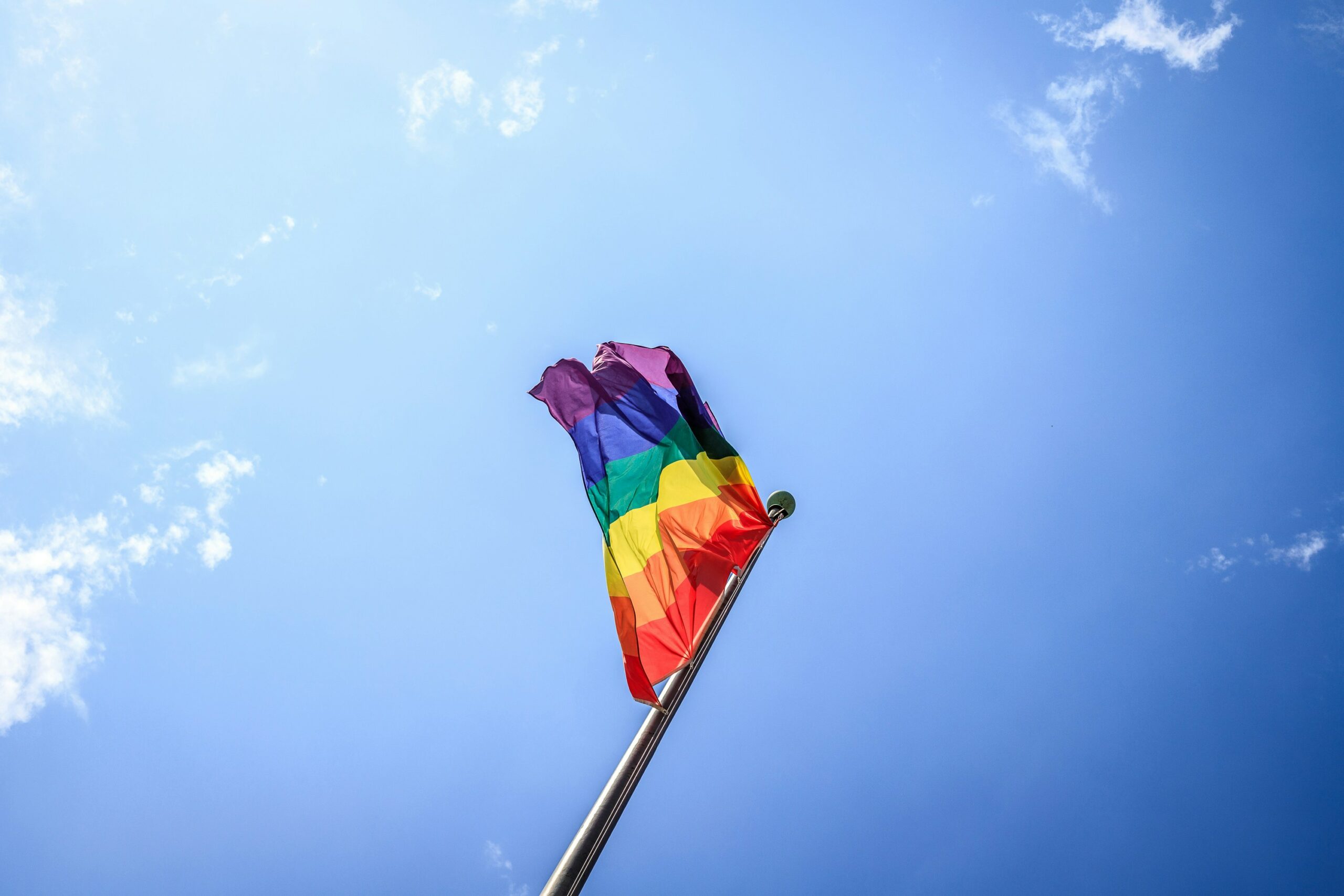Image: A rainbow flag in Cologne, Germany via Tim Bieler (Unsplash)
A 2019 study by the Gay, Lesbian & Straight Education Network (GLSEN) stated that only 8.2% of LGBTQ+ students have access to sex education that is LGBTQ-inclusive. The lack of teaching inclusive sex education impacts mental wellbeing and risks the miseducation of STIs, STDs and safe sex for LGBTQ+ students.
Imagine this: you’re in your high school sex ed class. It’s already awkward and someone is laughing at every picture being clicked through the projector. The bell just rang: class over. Not only was the lesson not informative, but they didn’t even talk about anything that would apply to someone that isn’t cisgender and heterosexual. “Is something wrong with me?” All over the U.S., students wonder this question after sitting through their health class.
What is inclusive LGBTQ+ sex education? Planned Parenthood describes it as a program that helps young people understand gender identity and sexual orientation with age appropriate and medically accurate information; incorporate positive examples of LGBTQ+ individuals, relationships and families; and emphasize the need for protection during sex for people of all identities.
Today, only 31 states require sex education to be taught in schools. Over 20 states have what has been termed as “anti-gay curriculum laws,” an umbrella term for curriculum that “discriminate[s] against homosexuality, and [that] governs the health-education, HIV-education, and sex education curricula in public schools.” As such, these laws prevent the inclusivity of any LGBTQ+ subject. Other states do not necessarily have these laws, but they discourage positive inclusivity regarding the LGBTQ+ community. As of 2022, over a dozen states have begun proposing their own versions of Florida’s “Don’t Say Gay” bill. 24% of LGBTQ+ students haven’t had any sex education according to the GLSEN.
As of October 2018, five states follow a policy that teaches anything related to homosexuality negatively. This is mentally and physically hurting LGBTQ+ youth. They portray harmful stereotypes about the LGBTQ+ community and HIV/AIDs and claim that homosexuality is unnatural. This does not prevent kids from exploring their sexuality; this just pushes them in the direction of doing it in an unsafe manner.
There are five different types of Anti-LGBTQ+ laws in school curriculums. Clifford Rosky, a Professor of Law at University of Utah S.J. Quinney College of Law, stated that these are ‘Don’t say Gay,’ ‘No Promo Homo,’ ‘Anti-Homo,’ ‘Promo Hetero’ and ’Abstinence Until Marriage.’ These narrow views are harmful for students’ mental health, but many of these practices are outdated, like the abstinence till marriage approach. Telling students to “wait until marriage” does not educate them on contraceptives, teen pregnancy or STDs, including HIV. Pushing aside these healthy conversations only makes young adults afraid to talk out loud about their feelings and experiences.
Shoving the discussion of gender identity and sexual orientation under the rug is hurtful to a young student’s mental health. Students surrounded by unsupportive peers and staff can feel the tension between themselves and the topic of their sexuality. Especially with no allyship being shown in their school, they can experience reactions of discrimination and in some cases violence. These experiences can lead to students having suicide attempts, depressive episodes and anxiety. Studies have shown that providing LGBTQ+ inclusive education reduces the risks of these students experiencing singled out bullying and lower odds of showing depressive symptoms.
LGBTQ+ students can feel safer when they are acknowledged and supported in school. Researchers have shown that LGBTQ+ inclusive curriculums can improve the school climate for students. Including a diverse lesson plan in sex ed, students will less likely experience the feeling of being left out or discriminated against. A lack of inclusive sex education has also led to the belief of more teens facing teen pregnancy, abusive relationships and engaging in risky sexual behaviors. California, Oregon and New Jersey are three states that have LGBTQ+ inclusive sex ed and have all seen progress in reducing the number of teen pregnancies lower than the national average.
Lauren Flynn-Miller is a fourth-year Interdisciplinary Studies major with minors in Journalism, Media & Culture and Professional & Technical Writing.

